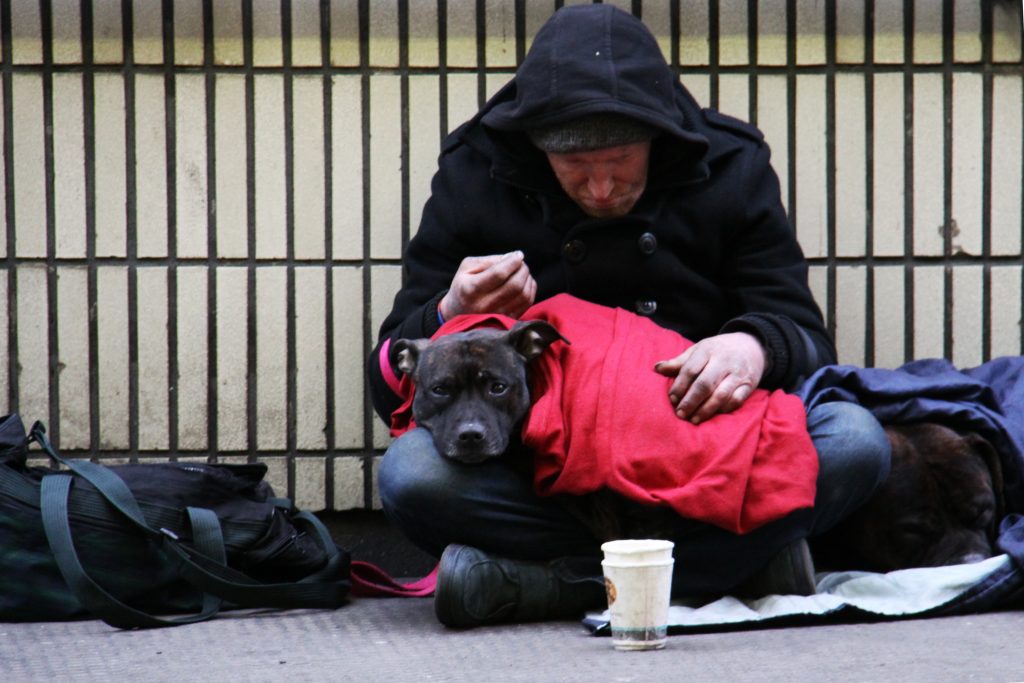Our response to homelessness must be compassionate on a political and human level, writes Lindsay Cordery-Bruce
This is the second article curated by Community Housing Cymru in a series exploring homelessness in Wales as a cross sector issue. You can read the first article here.
Some sobering statistics show that homelessness across the UK has risen 165% in the past nine years; rough sleeping across Wales increased by 45% between 2015 and 2018; someone dies homeless in the UK every 19 hours.
At The Wallich, we are facing these issues head-on, 365 days a year, not just in the colder winter months; but it’s hard, and we’re not winning the fight. Our Rough Sleeper Intervention Teams are out across Wales every morning taking hot food, advice, support and most importantly, trauma-informed knowledge and expertise, to people who have slept rough the night before.
We have seen a huge increase in both the number of people we are seeing, and in the myriad of mental and physical health issues people are facing. Our staff meet people with terrible stories of being mistreated, assaulted, exploited and let down. The despair is palpable.
What can be done to solve the issue of rough sleeping this winter and into the new year, and what can we all do to help solve this national crisis?
What can we do at a national and government level?
The good news is, there is significant cross-party political will to tackle homelessness in Wales. We have a committed and forward-thinking Minister and she has appointed a number of experts to form the Homelessness Action Group. The first challenge for this group was how to tackle rough sleeping in the short-term and their recommendations have been widely supported.
Rough sleeping is almost always symptomatic of a greater set of challenges someone is facing. It is rarely just a housing issue and it is rarely solved by shelter alone. We need alignment of Health, Housing and Criminal Justice portfolios in order to tackle it effectively.
The commissioning landscape needs to change. Current funding structures mean services come and go or focus on a specific issue and people don’t fit into categories like that. The people we support need consistency, choice and control.
We need a ‘no wrong door’ approach with equity of access and multiple routes in to get help. We need to remove legal and arbitrary bureaucratic barriers to people getting the help they need.
More emergency accommodation is needed to meet demand, as well as the necessary funds to ensure existing accommodation is of a high standard, offering people dignity and appropriate space to recover.
What can we do at a local level?
The public perception of rough sleeping has shifted, and we are seeing more and more disdain, frustration and anger from people who are sick of not only the growing numbers, but sometimes the unfavorable consequences of rough sleeping. We need to shift this frustration towards kindness and compassion, always, and ensure people are educated about what to do to help.
Our communities need to support innovative ways of helping people. The Wallich’s mobile operations, our Street Fleet and Welfare Vehicle, means we can go to people sleeping rough and help on their terms, where and when they need it. We need the spaces and the commitment from communities to make this happen.
Businesses need to make a commitment to help end homelessness and rough sleeping. This means coming together to solve the underlying issues, looking at procurement policies involving social enterprises, using their influence to become a champion for the cause, developing employment opportunities for people with lived experience and the education for staff.
What can we do at an individual level?
When encountering someone sleeping rough, we would ask people to express some form of kindness and empathy. Have a conversation, make a human connection. 1 in 4 people sleeping rough spends every day alone.
If you give money, give unconditionally and without restriction. Try not to second guess what someone might spend it on or if they are spending it on the ‘right’ things. Just give.
If you want to donate items, ask what people need; have a conversation. Someone may have had 20 sandwiches that day, when what they really need is some antiseptic cream or a dog lead.
Inform yourself about services. Do a quick internet search about the local hostels in your area, their opening hours and their address. Give someone who is sleeping rough the advice which could lead to them getting somewhere to stay and to move away from the streets for good.
Use StreetLink. Download the free app and connect people sleeping rough with the services that can help them through the power of technology. Visibility is important for making sure people get support as quickly as possible; enter the person’s location and a professional will reach out to them.
We cannot end rough sleeping unless we have a community response to homelessness. We need a Wales where people stand together to provide hope, support and solutions to end homelessness, for good.
All articles published on Click on Wales are subject to IWA’s disclaimer.





